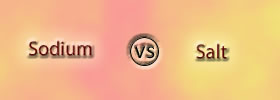Difference between Programming Language and Scripting Language
Key Difference: A programming language is a proper and formal language that has been designed to enable programmers to communicate instructions to a computer. Programming languages can be used to create programs. Scripting languages are generally a type of programming language that supports scripts. Scripts are programs written to control another programs.
 These days, computers, smartphones, and the internet and not a luxury, but rather a need in most people’s lives. However, despite using these things everyday, many people don’t realize the time and energy that go into developing applications. In order to develop an application, a developer will mostly need to have knowledge of programming languages and scripting languages.
These days, computers, smartphones, and the internet and not a luxury, but rather a need in most people’s lives. However, despite using these things everyday, many people don’t realize the time and energy that go into developing applications. In order to develop an application, a developer will mostly need to have knowledge of programming languages and scripting languages.
A programming language is a proper and formal language that has been designed to enable programmers to communicate instructions to a computer. Programming languages can be used to create programs. These programs can then be used to control the behavior of a machine or to express algorithms.
Previously, computers were slower and outdated. They has slower processors and less RAM, due to this programmers had to use detailed programming languages to develop applications, so that the computers would understand the explicit instructions and execute them.
As computer got faster and smarter, there was no need to develop full programs to execute simple tasks. Hence, using a detailed programming language to develop a full program was not required. Instead, a programmer would use scripting language to automate those quick and dirty tasks.
 Scripting languages are generally a type of programming language that supports scripts. Scripts are programs that are written for a special run-time environment. Instead of being compiled like full programs, they are interpreted and run within an existing program. Basically, scripts are programs written to control another program or programs. Scripts take a longer time to run, as the script must first be interpreted and then run in a supporting program. So even though scripting languages ran much slower than the compiled languages, they were easier as they required much less typing to get stuff done.
Scripting languages are generally a type of programming language that supports scripts. Scripts are programs that are written for a special run-time environment. Instead of being compiled like full programs, they are interpreted and run within an existing program. Basically, scripts are programs written to control another program or programs. Scripts take a longer time to run, as the script must first be interpreted and then run in a supporting program. So even though scripting languages ran much slower than the compiled languages, they were easier as they required much less typing to get stuff done.
Even though this is the traditional difference between programming languages and scripting languages, it does not necessarily hold through in today’s day and age. This is mainly due to the fact that develop an interpreter using a programming language and use it as a scripting language. For example, a C interpreter. Programmers today can also use a scripting language, such as JavaScript to compile a machine code and store that in an executable file, essentially making it a program.
Comparison between Programming Language and Scripting Language:
|
|
Programming Language |
Scripting Language |
|
Definition |
A programming language is an artificial language designed to communicate instructions to a machine, particularly a computer. |
A scripting language, script language or extension language is a programming language that allows control of one or more applications. |
|
Type |
Compiler-based language |
Interpreter based language |
|
Usage |
Developing something from scratch |
Used to combine existing components |
|
Interpretation |
Programmed languages are compiled into a more compact form that does not need to be interpreted by another application in the same way. The compiled result is stand-alone. |
Scripted languages are interpreted within another program (like JavaScript is put within HTML and then interpreted by the browser). |
|
Running |
Run independent of an exterior (or parent) program |
Run inside another program |
|
Design |
Designed to get full usage of a language |
Designed to make coding fast and simple |
|
Conversion |
Converts the whole program into machine language in one shot |
Converts high level instructions into machine language |
|
Creation |
Creates a .exe file |
Does not create a .exe file |
|
Compilation |
Needs to compile the program |
There is no need to compile the program |
|
Coding |
Programming is making a full code of program |
Scripts are just a piece of code |
|
Temperament |
Harder to code. Needs numerous lines of code for each function |
Easier to code. Needs only a few short lines of code for each function |
|
Complexity |
Are complex |
Are easy to use and easy to write |
|
Development Time |
Takes longer to develop as more code needs to be written. |
Takes less time to code as it needs less coding. |
|
Support |
|
|
|
Hosting |
Does not require a host. Is self – executable |
Requires a host |
|
Cost |
Increased maintenance cost |
Reduced maintenance cost |
|
Examples |
C, C++, C#, Java, VC++, VB, Basic, COBOL, Pascal, etc. |
JavaScript, VB Script, Shell, Perl, Python, Ruby, Rexx, PHP, GameMonkey, Lua, etc. |
Image Courtesy: plus.google.com, soliduscode.blogspot.com









Add new comment